FASEB MOSAIC
Equipping Scientists for Success in the Scientific Workforce
The FASEB MOSAIC program aims to support promising postdoctoral researchers selected for MOSAIC K99/R00 awards transition into independent faculty roles at research-intensive institutions. Participating scholars receive five years of professional development, mentoring, networking, and research support to help them continue their research career advancement.
MOSAIC supports FASEB’s efforts to develop a scientific workforce that is prepared to advance health research outcomes and address scientific challenges.

About FASEB MOSAIC
The FASEB MOSAIC program, funded by the National Institute of General Medical Science’s Maximizing Opportunities for Scientific and Academic Independent Careers (MOSAIC) Institutionally Focused Research Education Award (UE5GM155929), is designed to support a cohort of early-career investigators transition to independent, research-intensive faculty careers. The program aims to utilize opportunities available through scientific societies to establish meaningful professional networks and foster career progression among the next generation of biomedical researchers.
MOSAIC scholars (K99/R00 grantees) receive support in research team management through training, mentoring, and networking. The program aims to help scholars
- Build research management skills by leveraging our network of experts and mentors across scientific societies
- Cultivate resilience and build confidence to overcome barriers, achieving research career milestones both within their institutions and through professional service
- Benefit from lasting support systems that involve skills development and peer support
Key Components and Timeline
The MOSAIC program supports scholars’ professional development across three core categories:
- Bolstering of Foundational Skills for Research Careers
- Development of Core Professional Skills
- Fostering Individual Resilience
To ensure a curriculum that best meets the individual scholars' professional development needs, scholars complete an onboarding survey to identify areas for which they would like additional enrichment as well as opportunities to opt-out or participate asynchronously via on-demand content. Scholars also receive a one-time travel stipend to defray travel costs associated with participation in a scientific conference of their choice.
- Establish professional development goals and needs with MOSAIC mentor
- Take part in virtual offerings in foundational and professional skills development
- Complete course in resilience and self-advocacy
- Complete bias workshop
- Participate in 3.5 day in-person workshop and networking event
- Regularly engage with MOSAIC mentor to assess progress toward professional goals
- Continue development of foundational and professional skills
- Participate in effective grant writing workshop
- Participate in mock study section workshop
- Participate in 3.5 day in-person workshop and networking event
- Regularly engage with MOSAIC mentor to assist with transition from mentored scholar to independent researcher
- Take part in near-peer mentoring of subsequent FASEB MOSAIC scholars
- Participate in virtual offerings in navigating academic research career progression
- Participate in 3.5 day in-person workshop and networking events
Inaugural FASEB MOSAIC Scholars
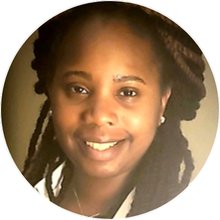
Jennifer Alexander, PhD, Postdoctoral Fellow, University of Pennsylvania
Project title: Balancing Cellular Repair and Regeneration in Aging and Disease
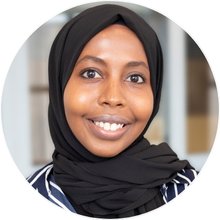
Naima Dahir, PhD, Postdoctoral Fellow, University of Michigan
Project title: Role of the PBN Melanocortin System in the Regulation of Ingestive Behaviors
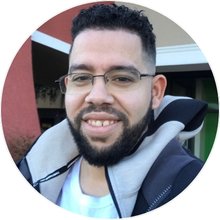
Rafael Perez, PhD, Associate Research Scientist, Yale School of Medicine
Project title: Role of Anterior Cingulate Cortex Ensemble Regulation of Spinal Cord Excitability in Associative Opioid Analgesic Tolerance
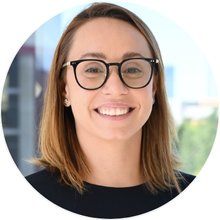
Camila Bonin Pinto, PhD, Associate Professor of Research, University of Oklahoma Health Sciences Center
Project title: Non-Invasive Brain Stimulation and Neurovascular Mechanisms of Post-Stroke Cognitive Impairment
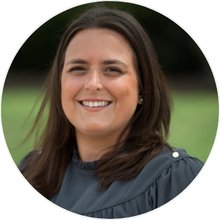
Danielle Porter, PhD, Postdoctoral Scholar, University of Michigan Life Sciences Institute
Project title: Role of the Melanocortin-3 Receptor in Regulation of the HPG Axis
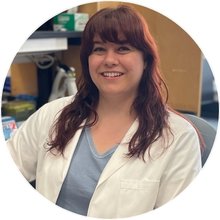
Megan Radyk, PhD, Postdoctoral Research Fellow, University of Michigan
Project title: Metabolic Regulation of Pancreatic Metaplasia and Neoplasia
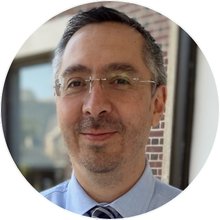
Luis Rodriguez, PhD, Research Associate, University of Pennsylvania
Project title: Aging and Metabolic Dysfunction Drive Disrupted Alveolar Epithelial Progenitor Function in Pulmonary Fibrosis
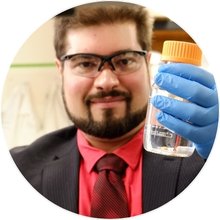
Juan Manuel Vazquez, PhD, Postdoctoral Fellow, University of California, Berkeley
Project title: Patterns and Mechanisms Underlying Somatic Mutations Across Long-Lived Bats
Questions?
For inquiries about the FASEB MOSAIC program, email us.
Program Administration
The FASEB MOSAIC program is supported by the National Institute of General Medical Sciences of the National Institutes of Health (NIH) under Award Number UE5GM155929.
- Program Director/Principal Investigator: Yvette Seger, PhD, Director of Strategic Scientific Program Advancement, FASEB
- Co-Principal Investigator: Michael Schaller, PhD, Professor of Biochemistry and Molecular Medicine, West Virginia University School of Medicine